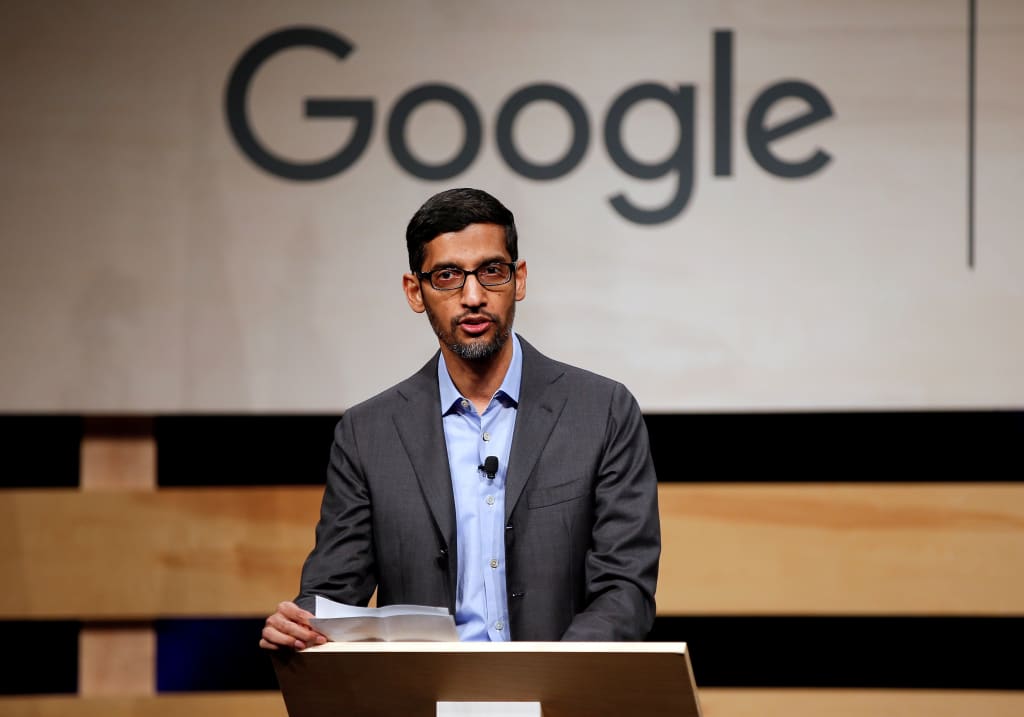Google CEO shares his concerns about AI
Sundar Pichai voices caution and hope for the future of Artificial Intelligence

Artificial Intelligence (AI) has undoubtedly become one of the most talked-about and disruptive technologies in recent years. AI-powered machines and algorithms are transforming various sectors, from healthcare to finance to transportation, and are poised to revolutionize the way we live and work.
However, as AI's potential continues to grow, so do concerns about its impact on society and the economy. The ethical and moral implications of AI have been widely debated, with experts and policymakers grappling with questions about data privacy, bias, and transparency.
One of the most prominent figures in the tech industry to voice his concerns about AI is Sundar Pichai, CEO of Google. In a series of interviews and public statements, Pichai has spoken about the need to approach AI with caution and ensure that its development aligns with society's values.
Pichai has emphasized that AI must be developed with a "human-centered approach" that prioritizes fairness, privacy, and safety. In a 2019 op-ed in the Financial Times, he wrote, "The tech industry needs to approach AI development responsibly, taking into account the ethical considerations and human impacts of the technology."
Pichai has also stressed the importance of ensuring that AI technology does not perpetuate biases or discrimination. He has stated that Google is working to improve its algorithms to prevent them from reinforcing negative stereotypes or discriminating against certain groups of people.
Another area of concern for Pichai is the potential impact of AI on employment. He has acknowledged that AI will undoubtedly displace some jobs but has also pointed out that it will create new ones. Pichai has emphasized the need for reskilling and education programs to help workers transition to new roles.
In addition to his public statements, Pichai has taken concrete steps to address AI's ethical and moral implications. In 2018, Google released a set of AI principles outlining its commitment to developing AI in a responsible and ethical manner. The principles include ensuring that AI is socially beneficial, avoids creating or reinforcing bias, and is transparent and accountable.
Google has also established an internal AI ethics board, called the Advanced Technology External Advisory Council, to provide guidance on ethical considerations related to AI development. However, the board was disbanded shortly after its formation due to controversy over the appointment of some of its members.
Despite Pichai's efforts, some critics have accused Google of not doing enough to address the ethical implications of AI. In 2018, Google employees protested the company's involvement in a Department of Defense project called Project Maven, which used AI to analyze drone footage. The employees argued that the project could contribute to the development of autonomous weapons and called on Google to withdraw from it. Google eventually withdrew from the project, citing concerns about the ethical implications of its involvement.
Pichai has also faced criticism for Google's use of AI in advertising. In 2019, the company was fined $170 million by the Federal Trade Commission for violating children's privacy laws by collecting data from children watching YouTube videos. Critics argued that Google's AI algorithms allowed the company to target ads to children based on their viewing habits, a practice that some saw as exploitative.
Despite the challenges and controversies surrounding AI, Pichai remains optimistic about its potential to improve people's lives. In a 2021 interview with TIME, he stated, "I believe AI is one of the most important things we're working on, and I think it has the potential to fundamentally change the trajectory of human progress."
Pichai's concerns about AI reflect the broader debate about the ethical and moral implications of emerging technologies. As AI continues to develop and become more widespread, it is essential to have a robust and ongoing conversation about how to ensure that it aligns with society's values and benefits everyone.
About the Creator
Enjoyed the story? Support the Creator.
Subscribe for free to receive all their stories in your feed. You could also pledge your support or give them a one-off tip, letting them know you appreciate their work.






Comments
There are no comments for this story
Be the first to respond and start the conversation.